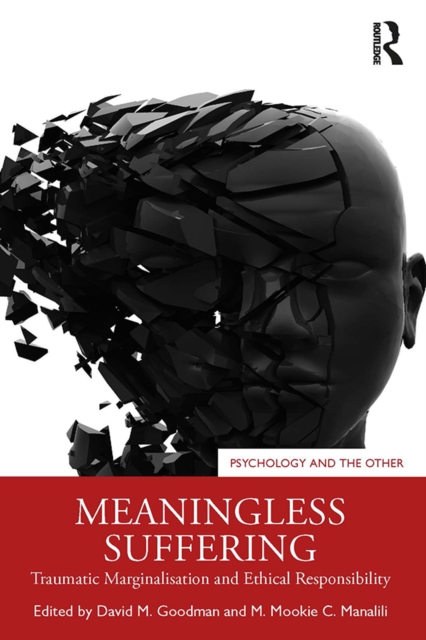
Meaningless Suffering : Traumatic Marginalisation and Ethical Responsibility PDF
Edited by David Goodman, M. Mookie C. Manalili
Part of the Psychology and the Other series
Description
Does suffering have meaning? The leading scholars and practitioners in Meaningless Suffering engage with this haunting human question through the lenses of psychoanalytic, phenomenological and ethical discourse, all the while holding contemporary social concerns in full view.
The authors seek to find ways of speaking about the lived realities and historical moments that make up our social narratives - from the murder of George Floyd to the bird watching incident in Central Park - in order to render visible the entangled forms of the effects of embodiment, ideology, race, social practice, and intersectionality. Meaningless Suffering is bookended by powerful pieces by Mari Ruti and Homi K. Bhabha and, in the intervening chapters, the reader traverses the ideas of Augustine, Judith Butler, Fanon, Foucault, Freud, Gendlin, Heidegger, Lacan, Levinas, and Wittgenstein to pass through the realms of classical thought, affect theory, phenomenology, linguistic studies, relational psychoanalysis, somatic studies, intersubjectivity theory, gender studies, critical theory, and philosophical hermeneutics.
This book is essential reading for postgraduate students, scholars, and practitioners working at the intersection of psychoanalysis, race, politics, and culture, as well as students of cultural studies, the humanities, politics, psychology, psychosocial studies, sociology, and social work.
Information
-
Download - Immediately Available
- Format:PDF
- Pages:264 pages
- Publisher:Taylor & Francis
- Publication Date:25/03/2024
- Category:
- ISBN:9781003862864
Information
-
Download - Immediately Available
- Format:PDF
- Pages:264 pages
- Publisher:Taylor & Francis
- Publication Date:25/03/2024
- Category:
- ISBN:9781003862864










